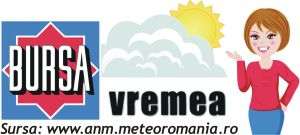• Inflation risks persist in the medium term
The NBR has remained consistent and has kept the key rate at 6.25%, as well as the current levels of the minimal mandatory reserves for assets denominated in lei and in foreign currencies, thus confirming analyst expectations, according to the decision of the Board of Directors of the NBR, made in yesterday"s meeting.
The communiqué of the NBR states: "The monetary policy is aimed at maintaining an ensemble of real monetary policies in a broad sense adequate for a stabilization of inflationary expectations and or consolidating the convergence of the interest rates towards the targets set for the medium term".
The medium term inflation outlook has improved as a result of the dissipation of the first round effect of the VAT hike, due to the relief of tensions on the international market for food commodities and due to an expected favorable impact of the domestic agricultural supply, in line with the forecasts of the NBR. Still, the Central Bank warns that in the medium term, risks concerning inflation remain significant. The source of these risks comes from the schedule and the size of the managed prices, the volatility of capital flows, in the context of the potential evolutions of the sovereign debt crisis in the European Union and the United States, as well as the uncertainty on the price of commodities on the international markets, the press release states.
The annual inflation rate fell in June to 7.93%, from 8.34%, as a result of the fall in the volatile food prices. On the other hand, the annual rate of the base inflation rate, measured by the CORE2 adjusted rate, has remained at a level of 4.7%, a level which was recorded ever since the month of April of 2011. The deceleration of inflation was prevented by the inertia of the propagation of the previous adverse shocks and by the presence of a basis effect on the segment of processed foods.
• Corporate borrowing remains tepid
The officials of the NBR claim that even though industrial output and exports had positive results, corporate borrowing has remained tepid.
"According to the latest statistical data, industrial output and exports have continued their upward trend. In spite of all this, the aggregate demand deficit remains, and the recovery in loans issued to the private sector, focused on the corporate segment, also remains modest in the context of the rise of the risks pertaining to the sovereign debt crisis in the Eurozone, as well as of signals concerning a relative slowdown of the economic recovery in this area", the communiqué states.
The NBR officials say that, amid the persistent risk of the sovereign debt crisis continuing, the consistent honoring by Romania of the commitments undertaken under the financing agreements with the international institutions, in particular of those pertaining fiscal consolidation and the correlation of the evolution of wages and of labor productivity, is essential for insuring the healthy recovery of the Romanian economy in the process of nominal and real convergence.
"Given these circumstances, maintaining the cautious attitude is necessary not only to respond to the significant risks remaining when it comes to inflation, but also the potential increase in the volatility of capital flows aiming at emerging economies", the press release states.
The Central Bank will continue to monitor the evolution of the domestic and of the international economic environments, in order to ensure price and financial stability on the medium term, through the adequate use of the instruments it has available.
The Board of Directors of the NBR has reviewed and approved yesterday the quarterly report on inflation, which will be presented to the public on August 8th. The next meeting of the Board of Directors of the NBR, concerning the monetary policy, will take place on September 29th, 2011.



















































